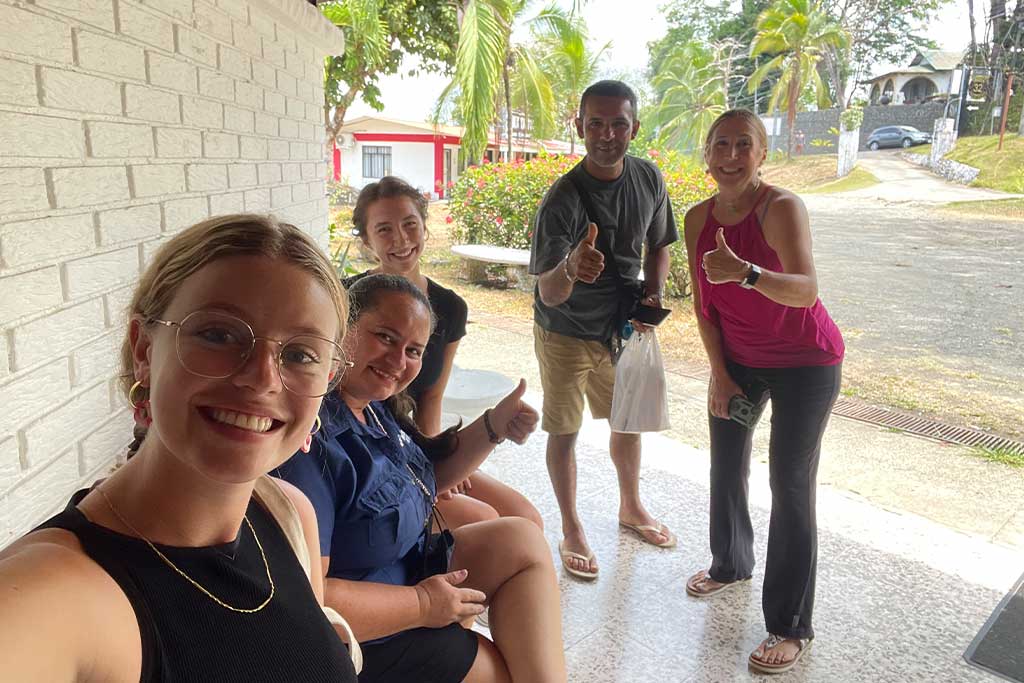Living in Lisbon. Salsa dancing in Seville. Climbing through the mountains of Cusco. There’s something alluring about the lifestyle of an expat. But for many, it seems out of reach. Is it possible to support yourself while traveling abroad?
Yes, it is! And the answer is simple: teaching. English is the most spoken language in the world. Therefore, there is a high demand for English instructors worldwide, especially if you’re a native speaker. Who knew your first language could land you a job?
Don’t question it. Just capitalize on it! Teaching English abroad makes slow travel possible. If you have an income in the country you’re exploring, you can really relax—pause to take in new places, meet new people, experience new cultures.
And better yet, if you support yourself by teaching English, you won’t be spending all of your savings while you’re there. Depending on your lifestyle, you could even save money while traveling the world. So what are you waiting for? Let’s plan your trip.

Plan (A Little)
Before you board a plane to Costa Rica, take some time to make a rough plan. This doesn’t mean you need to know everything. You may get to one city and fall in love but find that in another city one month is more than enough.
But while deciding some aspects of your trip on the ground might benefit you, there are others that you should at least think about in advance. The level of planning that’s advisable for you will also depend on what part of the world entices you.
For some Asian and European countries, it will be necessary to dot your i’s and cross your t’s before you pack your bag. Because the rigidity of immigration legislation varies a lot from country to country, you should definitely research visa requirements before you go.
If you have your heart set on Latin America, however, you may not need to apply for a visa before your adventure begins. Immigration laws in most Central and South American countries are administrative in nature, meaning that overstaying results in a fine rather than a legal penalty.
Remember though that the leniency of immigration procedures varies dramatically in different parts of the globe, so you should know what you’re getting into before you commit to a teaching contract. And if possible, it’s a load off to have a job lined up before you go.
But once again, Latin America in particular is a more relaxed environment for teaching English abroad. Because of the informality of a lot of practices in these countries, it’s possible to just show up and apply for jobs on the ground. Researching ahead of time is helpful but not vital.

Traveling with a few printed out resumes is likely preparation enough. Most employers will be looking for a TEFL certificate and/or a bachelor’s degree, but requirements will vary based on the region and whether it’s a school, an institute, or another type of organization entirely.
Looking for a job on the ground can be exhilarating but remember to have a little padding in the bank in case the process takes a little longer than expected. Also consider online teaching jobs if you’re planning to move around a fair bit.
And aside from the obvious financial planning that traveling entails, there are a few details to consider like suggested vaccinations, the country’s official language and cultural norms in your intended destination.
Be Flexible, Be Social, Live Local
But after you’ve got all that research jazz out of the way, we can talk about surviving your day-to-day life. Even though a certain degree of planning will make any experience run more smoothly, it’s important to remain flexible when living abroad.
There will be so much you can’t foresee or control. So rather than fighting against the current, do your best to go with the flow. Try to learn from your senior coworkers if you have any and take cues from locals.
Becoming more adaptable and open to ways of life other than your own is one of the most valuable aspects of living in a foreign country. And to really learn from the experience, you’ll have to let go of the reins at least a little.
In addition to being open to the “newness” of your foreign life and home, it’s also beneficial to try and build a community. Despite the glamorous draw of living abroad, it can actually be quite isolating if you don’t put yourself out there.

Living abroad long-term isn’t right for everyone because you’ll inevitably be separated from much of your family. But if you’re not intimidated by the distance, rest assured that an international lifestyle doesn’t have to be lonely! In fact, it can be an excellent way to make friends from all over the world.
Maybe being bubbly has never been your thing. But when you’re living far from home, going the extra mile to make connections with coworkers and the local community can really enrich your experience. So grab a drink after work. And if they’re adults, ask your students what you should do in their city.
Developing a lifestyle that’s more in tune with the local culture will ensure that your time abroad is as authentic and sustainable as possible. As a foreigner, it’s expected that your life won’t exactly mirror those of your students.
However, if you make an effort to live locally in small ways, you’ll learn more about the country you’re living in, and you’re bound to save quite a bit of money. So try to shop at local markets, take local bus lines, learn the local language. But while you’re trying to survive, make sure to still give yourself room to thrive! For many, teaching English abroad is the opportunity of a lifetime. So every once in a while, forget the visas and job applications and bus routes, and just soak it up!
